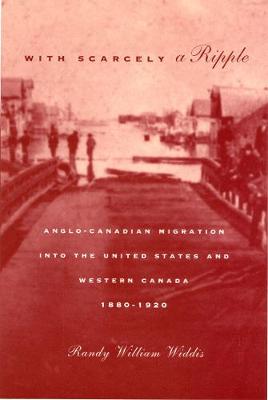McGill-Queen's Studies in Ethnic History
1 primary work
Book 29
Using a prosopographical approach that combines descriptive exposition, quantitative tabulation, and structural analysis, Randy Widdis determines the geographical and social origins of migrants, the distance and direction of migration corridors, and geographical destinations in both the United States and Canada. The study provides a new view of the invisible Anglo-Canadian, one of the largest and least understood immigrant groups in the United States. Widdis's results show that there were many differences between Anglo-Canadians, and that their experience in the United States was much more complex than is usually assumed. With Scarcely a Ripple not only contributes to our understanding of the dynamics of intra-regional, inter-regional, and return Anglo-Canadian migration but also interprets this movement in terms of the paradox of an emerging Canadian identity and a developing integration with the United States. It offers a historical geographical perspective on a subject that, in this era of free trade and globalization, is more relevant than ever.
